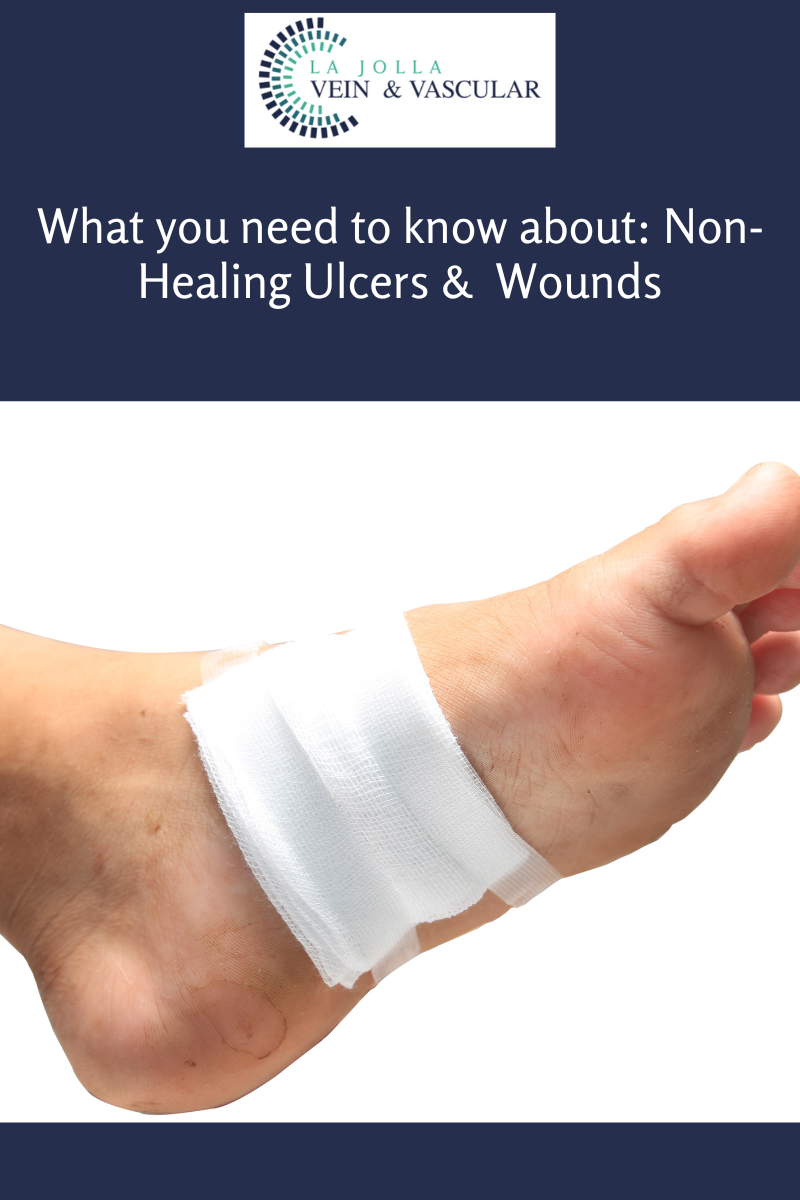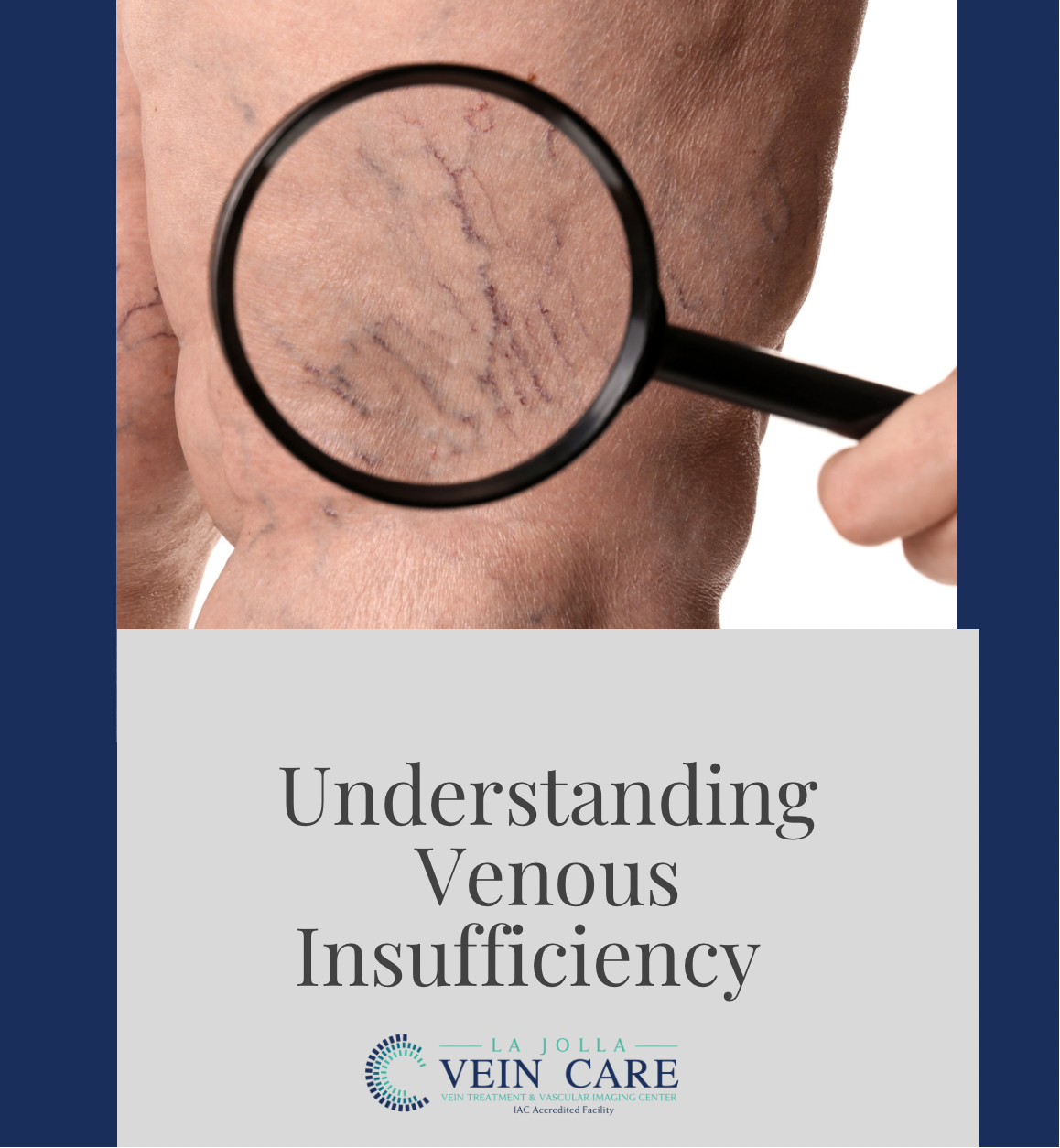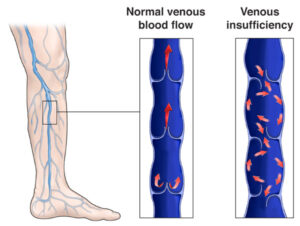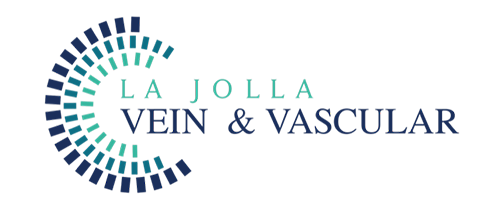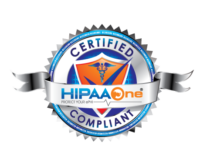What you need to know about: Non-Healing Ulcers & Wounds
LJVascular2022-08-18T15:55:24-07:00Non-Healing Ulcers & Wounds
We might all be familiar with ulcers in a general manner, but certain types of ulcers behave quite differently due to various contributing factors. These are non healing ulcers or non healing wounds, and if not treated with care and in good time, such wounds can pose a serious risk to the patient’s health. Severe cases may lead to amputation of the affected limbs or loss of life in the most extreme circumstances. The nonhealing ulcers cases we treat here at La Jolla Vein & Vascular fall under peripheral arterial disease (PAD) and a subcategory of arterial disease.
Non-healing wounds or ulcers do not follow the usual healing process and are referred to as chronic wounds should they persist beyond 3 weeks. Such wounds can be a heavy burden to live with for anyone. Still, the board-certified vascular surgeons and specialists at La Jolla Vein & Vascular are dedicated to administering effective treatment and management solutions to all patients so they may resume a healthy, productive, and pain-free life.
Types of Non-Healing Ulcers
In general, patients will present with one of three categories of non-healing ulcers, with these categories being broadly defined by the major causative factors allowing for their development. These are:
Arterial or Venous Ulcers
These are found to account for between 70% up to 90% of non-healing wounds or non-healing ulcers. Mostly occurring in elderly patients, they are believed to come about as a result of a failure of the valves in a person’s blood vessels of both arteries and veins. These valves are responsible for preventing the backflow of blood as it passes within them. The consequent outcome is a lack of nutrient and oxygen-rich blood from reaching the affected tissues and sets up the conditions favoring non-healing wounds.
Pressure Ulcers
These are ulcers that are brought about by the restriction of blood flow to certain regions of the body due to the persistent and prolonged application of pressure upon them. It is mostly encountered among patients with full or partial paralysis and those who are bedridden for extended periods.
Diabetic Ulcers
These are also highly prevalent chronic wounds, and are on the increase among patients owing to the ever-increasing cases of diabetes among the population. In fact, the prevalence of chronic wounds among diabetics makes this demographic 15% more likely to have to undergo limb amputation as a complication of the condition.
The high amputation rate among diabetics is attributable, in part, to the neuropathic effects of the ailment. Neuropathy leads to a lack of pain perception in the affected individual, meaning that they may be entirely unaware of minor wounds on their feet and legs in good time, allowing for their infection or repeat injury. It is also made more likely by the immunosuppressive effects of the condition, which makes the patient more vulnerable to infection.
“Bringing Experts Together for Unparalleled Vein and Vascular Care”
La Jolla Vein & Vascular (formerly La Jolla Vein Care) is committed to bringing experts together for unparalleled vein and vascular care.
Nisha Bunke, MD, Sarah Lucas, MD, and Elliot DeYoung, MD are specialists who combine their experience and expertise to offer world-class vascular care.
Our accredited center is also a nationally known teaching site and center of excellence.
For more information and to book a consultation, please give our office a call at 858-550-0330.
For more information please check out our Youtube Channel at this link.
For more information on varicose veins and eliminating underlying venous insufficiency, check this link out full of resources.

